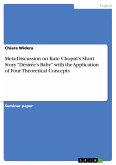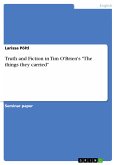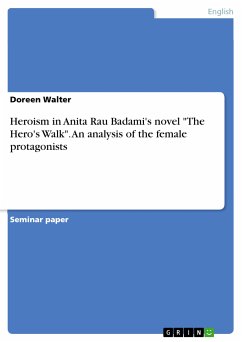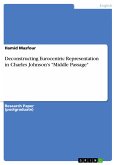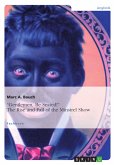Seminar paper from the year 2015 in the subject American Studies - Literature, grade: 2,7, University of Bamberg, course: American Literature, language: English, abstract: Examples of feminist literature are Betty Friedan’s The Feminine Mystique, a critical analysis of the American society, and Virginia Woolf’s work A Room of One’s Own, in which she focusses on the limited or rather not even existing rights of female authors. (Cf. Temple) While the first book is an analysis and the second one is an extended essay, Carol Emshwiller, an American author, comes up with another, different way of expressing feminist thoughts in written form in 1990 – a fable. How this kind of literary genre contributes to the display of the subject of feminism and how it is used in the purpose of Emshwiller’s ambiguous story-telling in Carmen Dog will be described and interpreted in this paper. “First-wave feminism is that version of feminism that emphasises women’s social and political rights.” (Higgs 2006) It “demanded that women have certain rights: to vote, to equal pay, to equality before law, and to divorce. […] Second-wave feminism examines the highly questionable assumption underlying male domination. […] Moreover, second-wave feminists have uncovered much credible historical evidence which suggests that women’s achievements in arts, maths and science have been systematically suppressed by men.” (Higgs 2006) The third wave of feminism “emerged in the 1990s” and “defines itself as a budding political movement with strong affiliations to second wave feminist theory and activism. Third wave feminism speaks to a generation of younger feminists – born in the 19060s and 1970s – who see their work founded on second wave principles [inequalities concerning sexuality, family and the work place], yet distinguished by a number of political and cultural differences.” (Barbon 2009)



